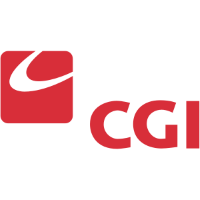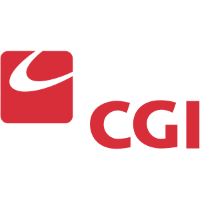
CGI Inc
TSX:GIB.A


| US |

|
Johnson & Johnson
NYSE:JNJ
|
Pharmaceuticals
|
| US |

|
Berkshire Hathaway Inc
NYSE:BRK.A
|
Financial Services
|
| US |

|
Bank of America Corp
NYSE:BAC
|
Banking
|
| US |

|
Mastercard Inc
NYSE:MA
|
Technology
|
| US |

|
UnitedHealth Group Inc
NYSE:UNH
|
Health Care
|
| US |

|
Exxon Mobil Corp
NYSE:XOM
|
Energy
|
| US |

|
Pfizer Inc
NYSE:PFE
|
Pharmaceuticals
|
| US |

|
Palantir Technologies Inc
NYSE:PLTR
|
Technology
|
| US |

|
Nike Inc
NYSE:NKE
|
Textiles, Apparel & Luxury Goods
|
| US |

|
Visa Inc
NYSE:V
|
Technology
|
| CN |

|
Alibaba Group Holding Ltd
NYSE:BABA
|
Retail
|
| US |

|
3M Co
NYSE:MMM
|
Industrial Conglomerates
|
| US |

|
JPMorgan Chase & Co
NYSE:JPM
|
Banking
|
| US |

|
Coca-Cola Co
NYSE:KO
|
Beverages
|
| US |

|
Walmart Inc
NYSE:WMT
|
Retail
|
| US |

|
Verizon Communications Inc
NYSE:VZ
|
Telecommunication
|
Utilize notes to systematically review your investment decisions. By reflecting on past outcomes, you can discern effective strategies and identify those that underperformed. This continuous feedback loop enables you to adapt and refine your approach, optimizing for future success.
Each note serves as a learning point, offering insights into your decision-making processes. Over time, you'll accumulate a personalized database of knowledge, enhancing your ability to make informed decisions quickly and effectively.
With a comprehensive record of your investment history at your fingertips, you can compare current opportunities against past experiences. This not only bolsters your confidence but also ensures that each decision is grounded in a well-documented rationale.
Do you really want to delete this note?
This action cannot be undone.

| 52 Week Range |
134.09
162.33
|
| Price Target |
|
We'll email you a reminder when the closing price reaches CAD.
Choose the stock you wish to monitor with a price alert.

|
Johnson & Johnson
NYSE:JNJ
|
US |

|
Berkshire Hathaway Inc
NYSE:BRK.A
|
US |

|
Bank of America Corp
NYSE:BAC
|
US |

|
Mastercard Inc
NYSE:MA
|
US |

|
UnitedHealth Group Inc
NYSE:UNH
|
US |

|
Exxon Mobil Corp
NYSE:XOM
|
US |

|
Pfizer Inc
NYSE:PFE
|
US |

|
Palantir Technologies Inc
NYSE:PLTR
|
US |

|
Nike Inc
NYSE:NKE
|
US |

|
Visa Inc
NYSE:V
|
US |

|
Alibaba Group Holding Ltd
NYSE:BABA
|
CN |

|
3M Co
NYSE:MMM
|
US |

|
JPMorgan Chase & Co
NYSE:JPM
|
US |

|
Coca-Cola Co
NYSE:KO
|
US |

|
Walmart Inc
NYSE:WMT
|
US |

|
Verizon Communications Inc
NYSE:VZ
|
US |
This alert will be permanently deleted.
 CGI Inc
CGI Inc
CGI Inc
Investor Relations
CGI Inc., originally founded in 1976 by Serge Godin and André Imbeau as "Conseillers en gestion et informatique," stands as a testament to the evolution of the information technology and business consulting industry. Initially starting with the aim of offering IT consulting services, the company nurtured its roots in Quebec before sprouting branches worldwide. CGI has gradually transformed into a behemoth through a series of strategic acquisitions and solid organic growth. Its business model is akin to a sophisticated mosaic, interweaving IT services, systems integration, and managed services seamlessly. The company’s prowess lies in understanding complex technological needs across various industries and crafting tailored solutions that drive efficiency and innovation for its clients. This focus not only ensures high client satisfaction but also creates a steady revenue stream, with contracts often spanning multiple years.
As CGI navigates the digital landscape, its revenue streams are as diversified as its geographical footprint. Primarily, the company earns through long-term contracts in outsourcing and consulting, designed to optimize and integrate client operations. The beauty of this model is its predictability, which helps in maintaining a reliable financial outlook. By providing end-to-end IT and business process services, CGI plays an indispensable role in modernizing its clients' operations, thus embedding itself deeply into their business processes. The company's revenue is further enriched by its continuous investment in developing proprietary intellectual property solutions, which cater to niche industry needs and set CGI apart from its competitors. This blend of diverse service areas and intellectual capital not only sustains its growth but fortifies CGI’s position in the global market as a trusted partner in digital transformation.

CGI Inc., originally founded in 1976 by Serge Godin and André Imbeau as "Conseillers en gestion et informatique," stands as a testament to the evolution of the information technology and business consulting industry. Initially starting with the aim of offering IT consulting services, the company nurtured its roots in Quebec before sprouting branches worldwide. CGI has gradually transformed into a behemoth through a series of strategic acquisitions and solid organic growth. Its business model is akin to a sophisticated mosaic, interweaving IT services, systems integration, and managed services seamlessly. The company’s prowess lies in understanding complex technological needs across various industries and crafting tailored solutions that drive efficiency and innovation for its clients. This focus not only ensures high client satisfaction but also creates a steady revenue stream, with contracts often spanning multiple years.
As CGI navigates the digital landscape, its revenue streams are as diversified as its geographical footprint. Primarily, the company earns through long-term contracts in outsourcing and consulting, designed to optimize and integrate client operations. The beauty of this model is its predictability, which helps in maintaining a reliable financial outlook. By providing end-to-end IT and business process services, CGI plays an indispensable role in modernizing its clients' operations, thus embedding itself deeply into their business processes. The company's revenue is further enriched by its continuous investment in developing proprietary intellectual property solutions, which cater to niche industry needs and set CGI apart from its competitors. This blend of diverse service areas and intellectual capital not only sustains its growth but fortifies CGI’s position in the global market as a trusted partner in digital transformation.





























 You don't have any saved screeners yet
You don't have any saved screeners yet
